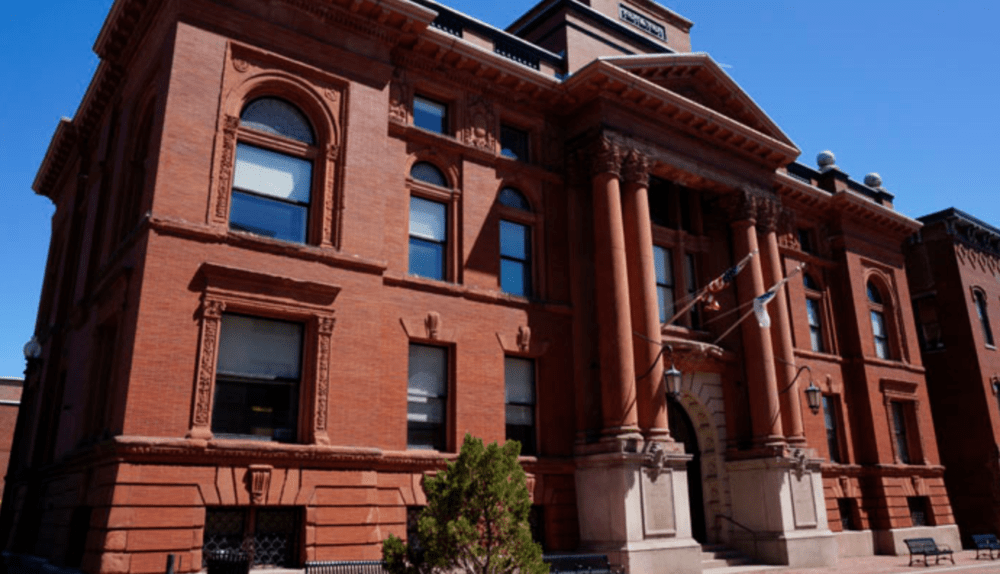Advertisement
Judge Dismisses Religious Objection In Gordon College Discrimination Case

A Massachusetts Superior Court judge has ruled that religious schools’ First Amendment protections do not allow them blanket exemptions from laws regarding workplace discrimination.
Faced with a former professor’s allegation of an unfairly denied promotion, Gordon College — the evangelical Christian institution in Wenham — has argued for years that she and all of its teachers are also ministers, and therefore not subject to ordinary statutes on discrimination. But in a finding issued last week, Judge Jeffrey Karp found in favor of the former professor: Margie DeWeese-Boyd, who taught on Gordon’s faculty of social work for over 20 years.
It’s a procedural victory as DeWeese-Boyd continues to pursue damages in her case. But it also provides a legal bulwark against religious schools getting what Hillary Schwab, DeWeese-Boyd’s attorney, called “carte blanche to violate discrimination laws.”
In the fall of 2017 DeWeese-Boyd alleged that she had been denied a promotion to full professor despite the support of Gordon’s faculty senate, and due in part to her outspoken support for LGBTQ students at an institution that forbids “homosexual practice.”
The college responded by invoking the “ministerial exception” formalized in a 2012 ruling by the U.S. Supreme Court. The court found that under the First Amendment, “the authority to select and control who will minister to the faithful… is [a] church’s alone.”
Judge Karp agreed with the first part of the college’s argument, finding that Gordon — while a liberal-arts school like so many others — is also undoubtedly a religious institution.
Upon their hiring, faculty members at Gordon must agree to a “statement of faith” that declares, among other things, that Christians are obligated to promote “the universal spread of the gospel,” and that “[t]he righteous shall enter into full possession of eternal bliss” after their death. In testimony, D. Michael Lindsay — Gordon’s president since 2011 said he sees joining Gordon’s faculty as akin to “joining a religious order.”
But Karp found that DeWeese-Boyd was not herself a minister in any sense of the word. Though she is herself a practicing Christian, Karp wrote, as a professor of social work she took little part in church activities, “had no religious duties and did not actively promote the tenets of evangelical Christianity," in his words.
To conclude, Karp borrowed from another ruling: to say that if DeWeese-Boyd were judged a minister, “it is hard to see how any teacher at a religious school would fall outside the exception.”
That was the concern for Hillary Schwab. Schwab said she and her client are grateful for what she called an “incredibly thoughtful and well-reasoned decision,” and observed that Karp may have taken additional care knowing that the U.S. Supreme Court was set to hear two cases on the ministerial exception on April 1. Those oral arguments were recently postponed.
In a statement, Gordon spokesperson Rick Sweeney wrote that “while the College is disappointed by this ruling, we remain confident in the application of the First Amendment’s ministerial exception” to its faculty and other employees. Sweeney also characterized the finding as “one stop along a long road,” and declined to comment on future steps, including a possible appeal.
Though DeWeese-Boyd’s particular claims of unlawful discrimination and breach of contract will now proceed, she’s no longer a professor at Gordon. Last spring, in a moment of financial difficulty, Gordon announced cuts to programs and faculty, including DeWeese-Boyd’s position.
In addition to monetary damages, DeWeese-Boyd is still seeking instatement as a full professor at Gordon. Schwab noted that she has also mounted a claim with the Massachusetts Commission Against Discrimination, arguing that her recent termination was a form of retaliation by the college.
With the question of the ministerial exception now settled, DeWeese-Boyd and Gordon will now argue the merits of her claims of discrimination. Schwab expects that phase to go more quickly — but she did raise the prospect of a possible appeal, and “a lot of work ahead” in any event.
